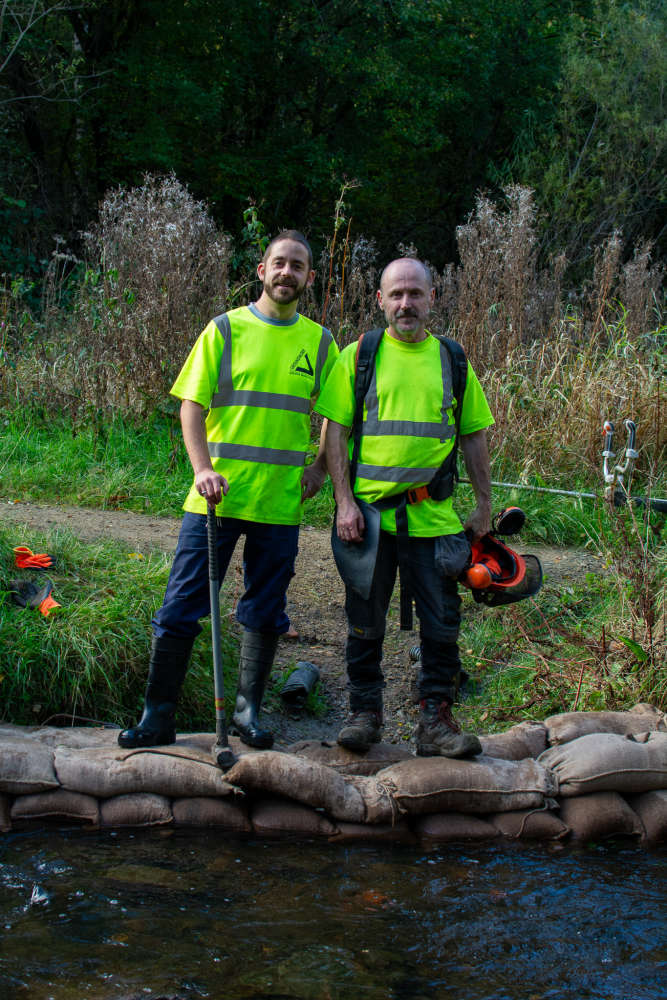
The River Medlock in Greater Manchester is being re-naturalised by Groundwork Greater Manchester as part of the final phase of an 18-month project to restore habitats for local wildlife in the Medlock Valley.
The £1.2m Medlock Valley Project has been working to restore woodland, protect habitats, and halt species decline across 30 hectares of canal network, riverbank, grassland, and wetland, along the Medlock Valley at seven sites, from Oldham, through Tameside, and into Manchester City Centre.
Over the last few weeks, a stone weir and revetment wall have been removed at Lees Brook, and the nearby footpath rerouted to allow the river to re-establish its natural connectivity and restore sediment and flow variability in the river.
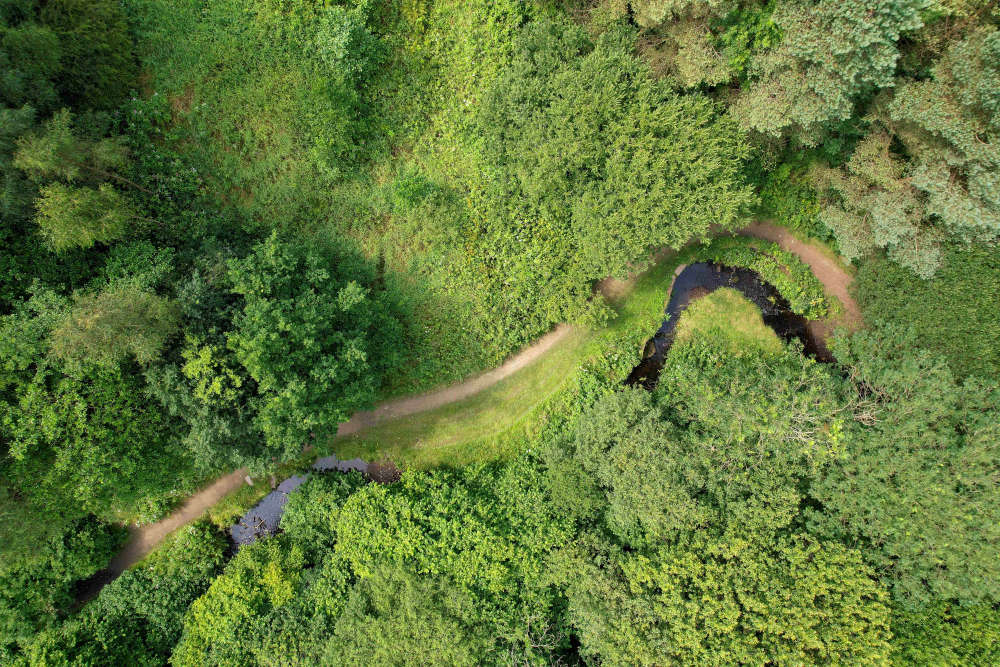
Pictured above: Before the work - birds eye view.
This will improve water quality and restore natural conditions for ecologically significant species, such as brown trout.
All the stone from the weir and revetment wall have been repurposed to form a new riverbed so that no material has gone to waste during the restoration work. The weir was the largest of five weirs within the park, with the biggest impact on the river.
Groundwork’s Trainee Urban Rangers have been pivotal in rebuilding the path, enabling the public to continue to enjoy the river, whilst providing space for the river flow to re-naturalise over time.
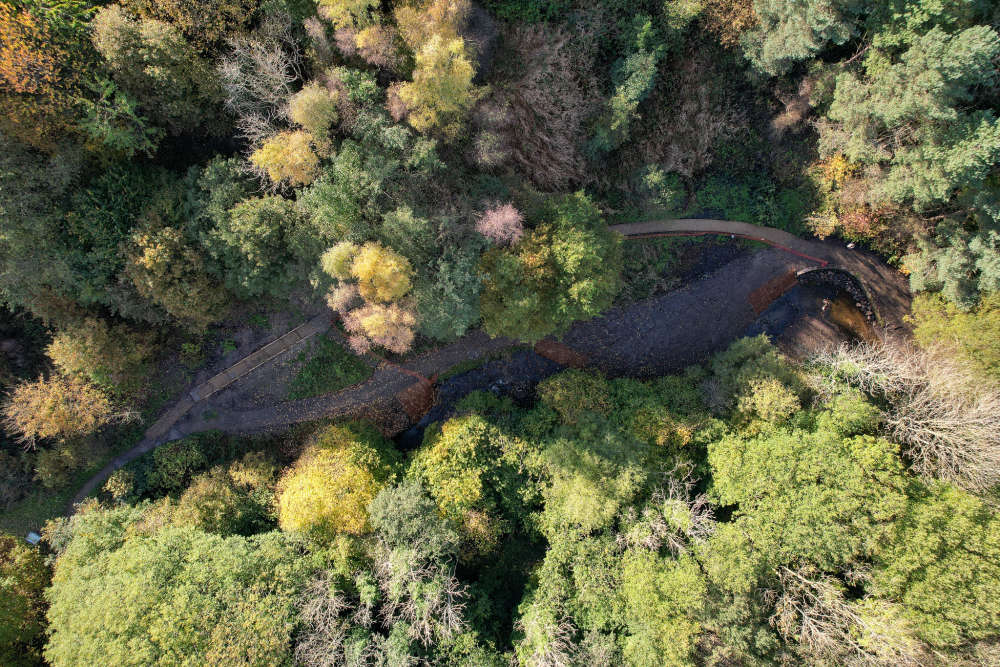
Pictured above: After the work - birds eye view.
Lou Smith, project manager for the Medlock Valley Restoration Project at Groundwork Greater Manchester, said: “Over the last 100 years, the River Medlock has been heavily modified and engineered, which has had a devastating impact on the local wildlife and habitats.
“Artificial structures, like weirs and engineered banks, disrupt ecological processes and connectivity and act as a barrier which restricts the movement of aquatic species and fragment habitats.
“Recent reports have identified the weir as a significant barrier to fish due to increased erosion, poor connectivity, and altered water conditions. Over time, this has had a very detrimental impact on the local brown trout population, as well as other aquatic lives.
“In other areas where we have carried out this kind of work, such as just downstream at Clayton Vale, it has resulted in the return of juvenile brown trout, so we know that the species is capable of recolonising when barriers are removed and are habitats restored.”
The 18-month Medlock Valley Restoration Project has received funding from DEFRA’s Species Survival Fund and the Environment Agency and is being delivered by Groundwork Greater Manchester, alongside its team of delivery partners, including TCV, the Canal & River Trust, City of Trees, and Mersey Rivers Trust.
To find out more, or get involved, visit Groundwork Greater Manchester, email greatermanchester@groundwork.org.uk or call 0161 220 1000.


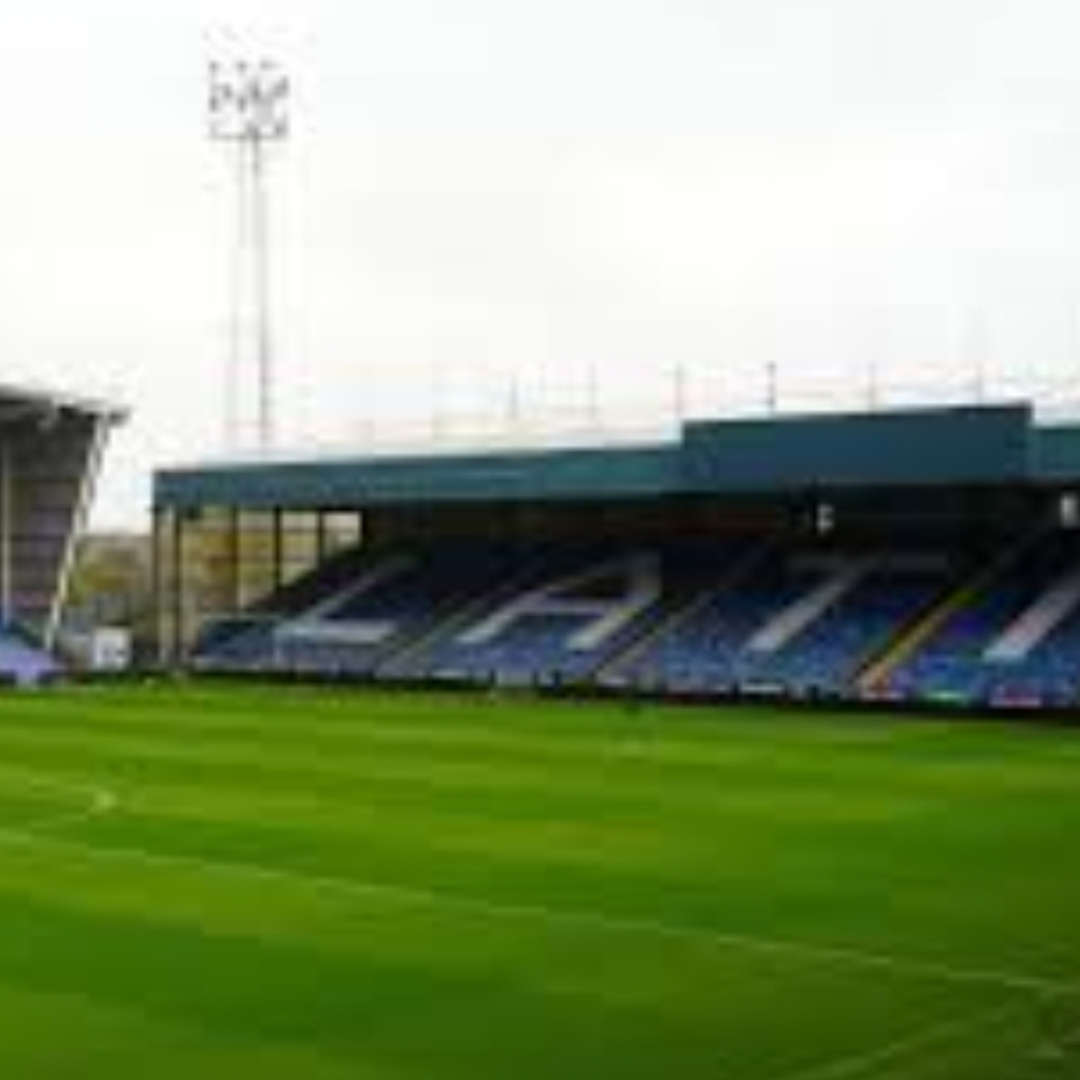 Preview: Can Latics turn on the attacking style at Boundary Park? And can you win a battle for truth against conspiracy nuts?
Preview: Can Latics turn on the attacking style at Boundary Park? And can you win a battle for truth against conspiracy nuts?
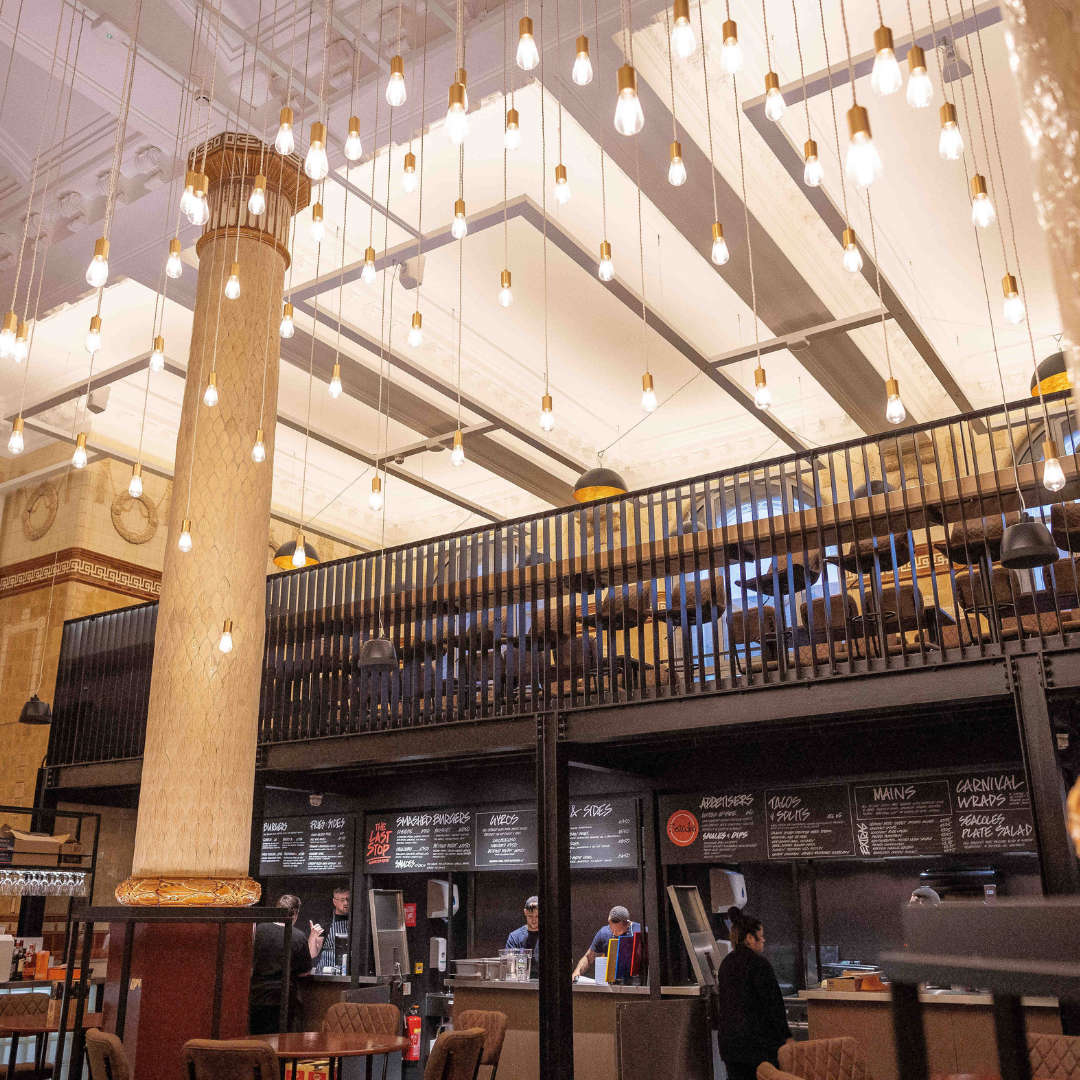 One of Greater Manchester’s newest food halls is up for an award
One of Greater Manchester’s newest food halls is up for an award
 Meet the childminder who made a big career switch to work with Oldham's littlest residents
Meet the childminder who made a big career switch to work with Oldham's littlest residents
 Man jailed after a violent and premeditated attack
Man jailed after a violent and premeditated attack



